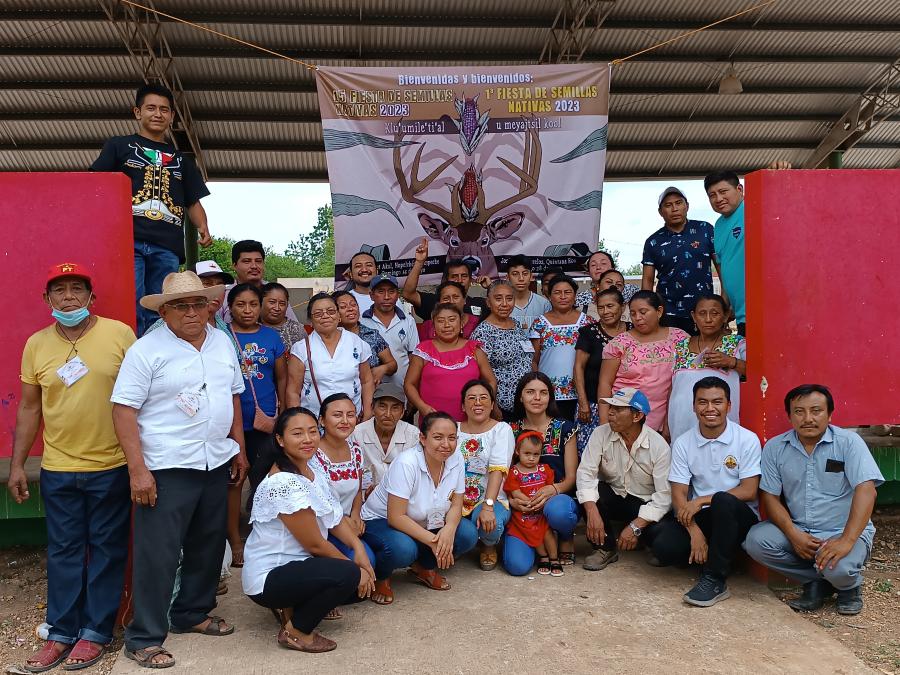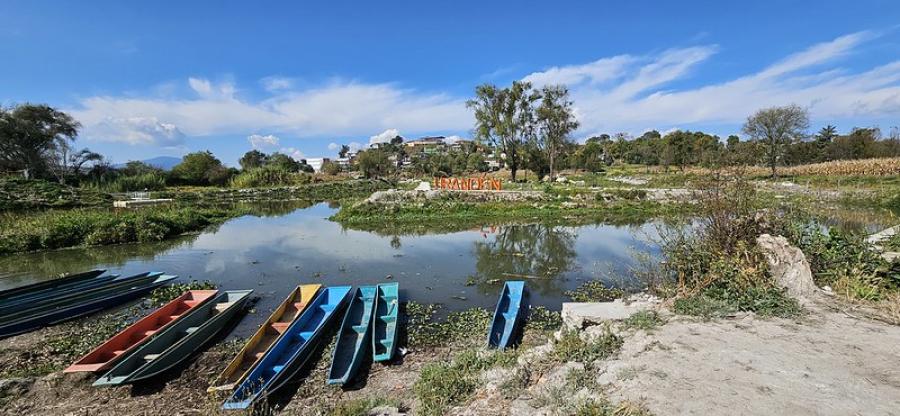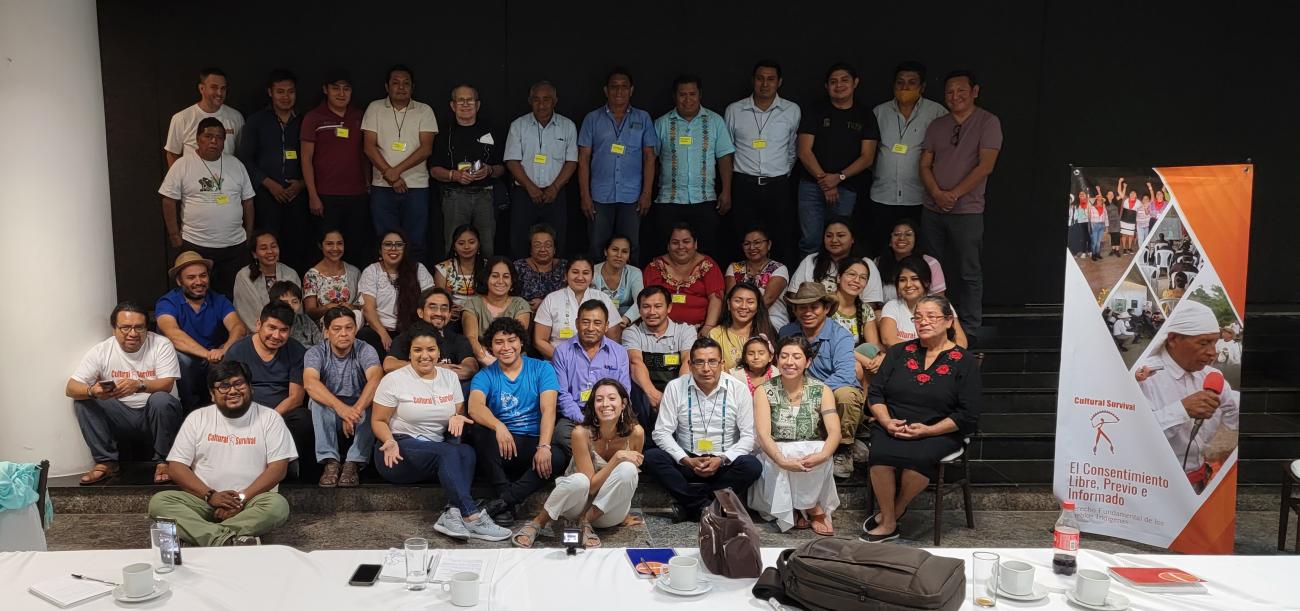
“The exercise of self-determination is a necessary task prior to the consultation because we have seen that many consultation exercises begin as a reaction to someone who wants to set up a project or a mine. Part of the community becomes active, but since the community is not consulted as a People, internal conflicts begin there. The exercise of self-determination is a necessary task and [needed] prior to the consultation; each Peoples choose how to exercise their autonomy.” - Yazmín Novelo (Maya), Coordinator, U Péekbal Waye
On December 2-4, 2022 in Merida, Mexico, Cultural Survival convened a meeting with Indigenous land defenders from the Yucatan Peninsula and Chiapas. Many of the 38 representatives of Indigenous organizations, communities, assemblies, and councils in the Yucatán, Campeche, Quintana Roo, Chiapas, Morelos, and Michoacán who joined us were from our Indigenous Community Media Program and our Keepers of the Earth Fund grant partner organizations. Environmentalists confronting Mexico’s Maya Train project, the 257 large-scale pig farms in Yucatan, and agro-industrial monoculture projects also participated in the event. Workshop participant José Luis Workshop from Kinchil, Yucatan, shared his reason for participating: “Currently, our western zone is impacted by harassment by foreign companies. This harassment is related to the purchase of land; as honey producers, the western zone of Kinchil produces about 5,000 tons of honey a year. If deforestation and contamination continue, there will come a time when, unfortunately, our activity may disappear.”
We convened this meeting to discuss, analyze, and share experiences on Free, Prior and Informed Consent (FPIC), a fundamental principle for the self-determination of Indigenous Peoples. Under this right, Indigenous Peoples can freely determine their political status and how they wish to structure their cultural, social, and economic development. On self-determination, one participant said, “Each Peoples freely determine how to live and how they want to practice their autonomy. Some say they want nothing to do with parties or economic systems. Some decide that it is useful for someone to administer, but in security matters, that is where they decide. Each town, according to its context, according to its needs, decides how it wants to live. That is autonomy.”
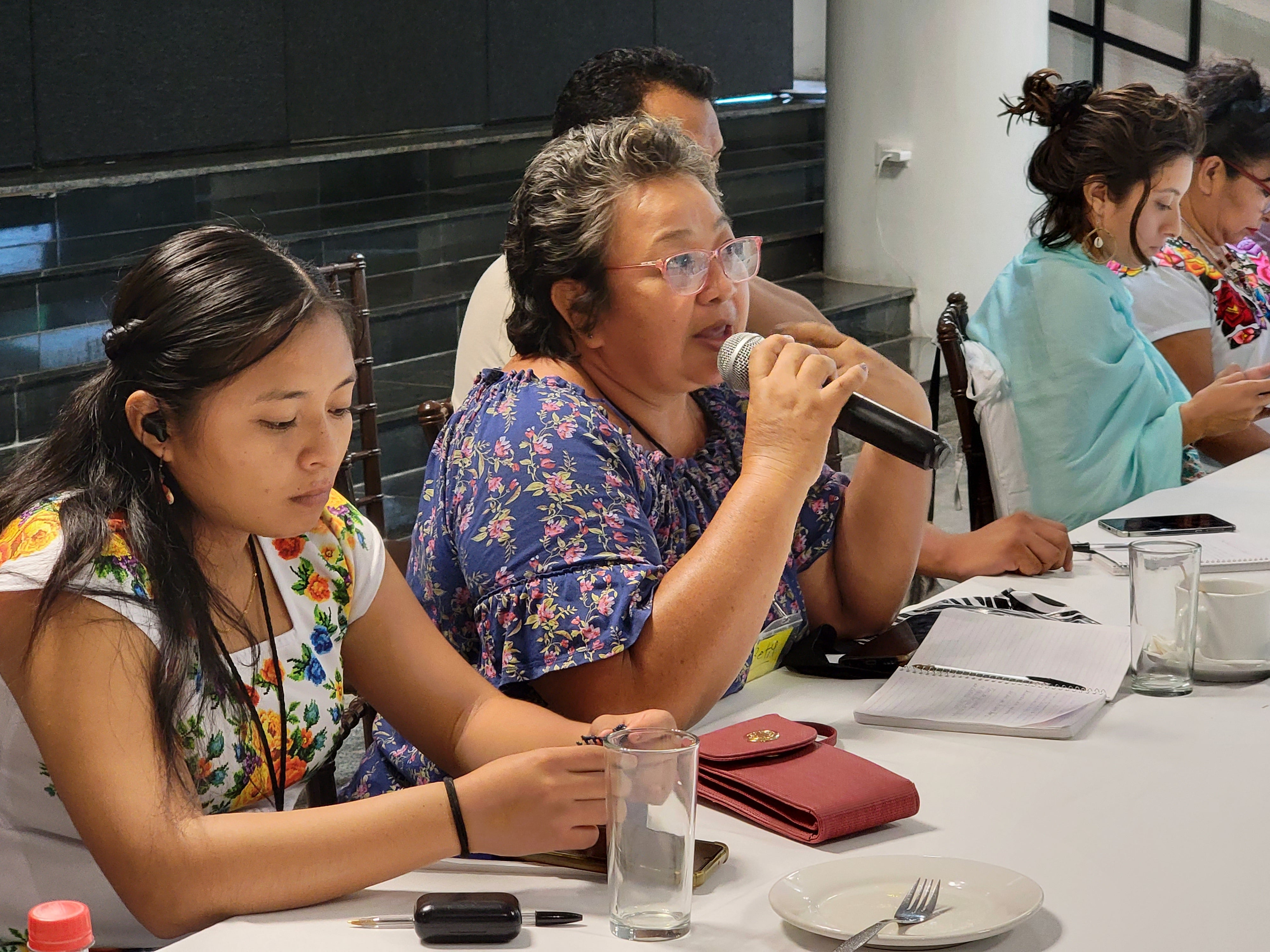
FPIC is also a tool for Indigenous communities to defend their collective rights. Through consultations following international standards, communities can give or deny approval to any project affecting them. Indigenous Peoples also have the right to negotiate the terms and perspectives used to design, implement, supervise, and evaluate such projects. Furthermore, even if Indigenous communities have consented, they can withdraw consent at any time. If fully respected, FPIC should be a mechanism for decision-making by Indigenous Peoples on projects or activities that have had or may have some impact on their communities, territories, and ways of life. The FPIC normative framework is a set of international legal instruments, mainly the United Nations Declaration on the Rights of Indigenous Peoples (2007), the International Labour Organization Convention on Indigenous and Tribal Peoples (1989), and the Convention on Biological Diversity. The Mexican State has voted for and is a party to all three of these mechanisms and, therefore, is obligated to follow their directives.
Indigenous organizations and community representatives repeatedly expressed that multiple projects are being developed purely for profit from building infrastructure, industrial agriculture, and transnational tourism in southeast Mexico. However, only local elites, global corporations, and government actors discuss, agree, and benefit from these projects, while the social and environmental consequences fall mainly on Indigenous communities and other historically marginalized sectors, such as campesinos and people living in poverty.
Jorge Pech, a member of the Chenes Mayan Community Collective, reflected on his community’s experience:
“Currently, we are facing dispossession and destruction of our territory due to the agro-industry in the municipality of Hopelchén. Transgenics are being planted. This ‘development’ model is what is causing the contamination of the water and the death of the bees. We are also facing the devastation of our resources and communities. We are organized, we are working hand in hand with young girls, boys, grandmothers, and grandfathers to give the territory a sense of identity again. We really [want the youth] to identify with this ancestral territory that they inherited from us in order to continue defending their hopes and dreams.
Our process has not been easy. We have faced different issues in the exercise of our self-determination, such as the failed consultation that we had from 2015-2017 in which our rights were violated. A consultation that already comes with an established protocol cannot be considered a consultation. [Consultations] must be built by the community. They must be built prior to a megaproject and prior to the process that will be implemented in those territories.
Indigenous communities have always had our own regulatory systems, only we do not know them as such with those Western definitions. We have our own assemblies, our ways of deciding what we want and how we want it. Different governmental systems have divided [and marginalized] this knowledge and these ways of organizing ourselves as communities. Let us seek again this self-determination, this autonomy, the power to decide how we want to appoint our authorities, who our commissioners are, what the community councils are like. What we want and don't want in our communities always has to start from the community. Now more than ever, it is time for us to decide what we want and how we really want to live.”
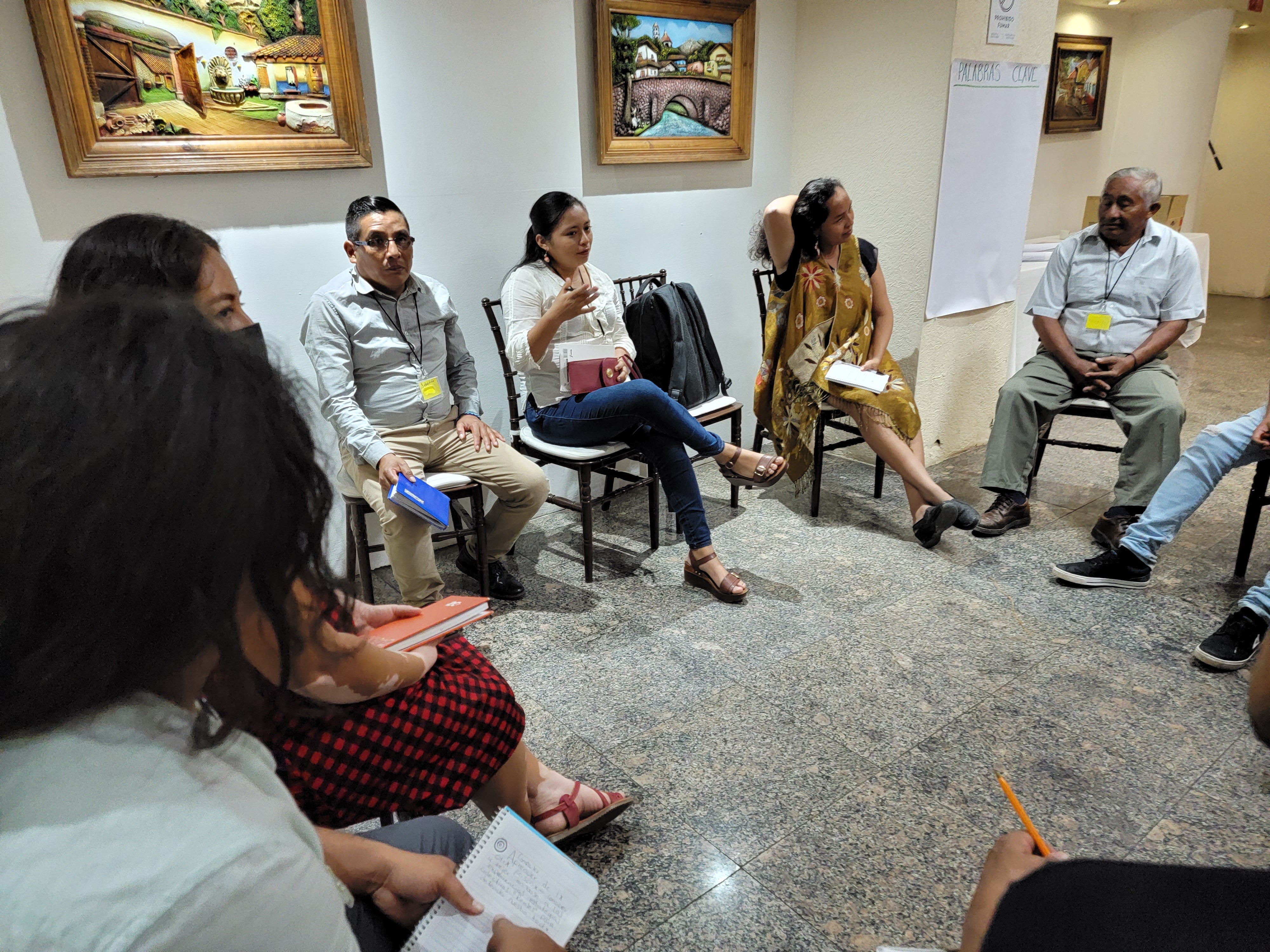
As various participants experienced and documented, these ‘development’ projects repeatedly pose environmental risks and have dispossessed communities of communal land and water and are a continuation of historical colonial policies that have marginalized and oppressed Indigenous Peoples. For example, construction for the Maya Train project (a 948-mile intercity railway in Mexico that will traverse the Yucatán Peninsula) required clearing a vital part of the Yucatecan jungle and cession of communal Indigenous land, which generally was carried out through manipulation, coercion, and deception. But the Maya Train is not the only cause of socio-environmental destruction. Other projects such as the hundreds of pig farms with tens of thousands of pigs cause extensive air and water pollution in delicate environments and ecosystems, including the longest subterranean river in the world.
Free, Prior and Informed Consent, to be complete, legitimate, and adequate, can only be the result of building collective awareness within communities in defense of the common good. Initiatives directed by government institutions most often mean manipulation and intimidation due to corporatism, authoritarianism, and corruption prevailing in Mexico's different levels of government. Added to this are the repeated legal and practical violations of companies, officials, and institutions, which already constitute a violation and denial of the self-determination of Indigenous Peoples.
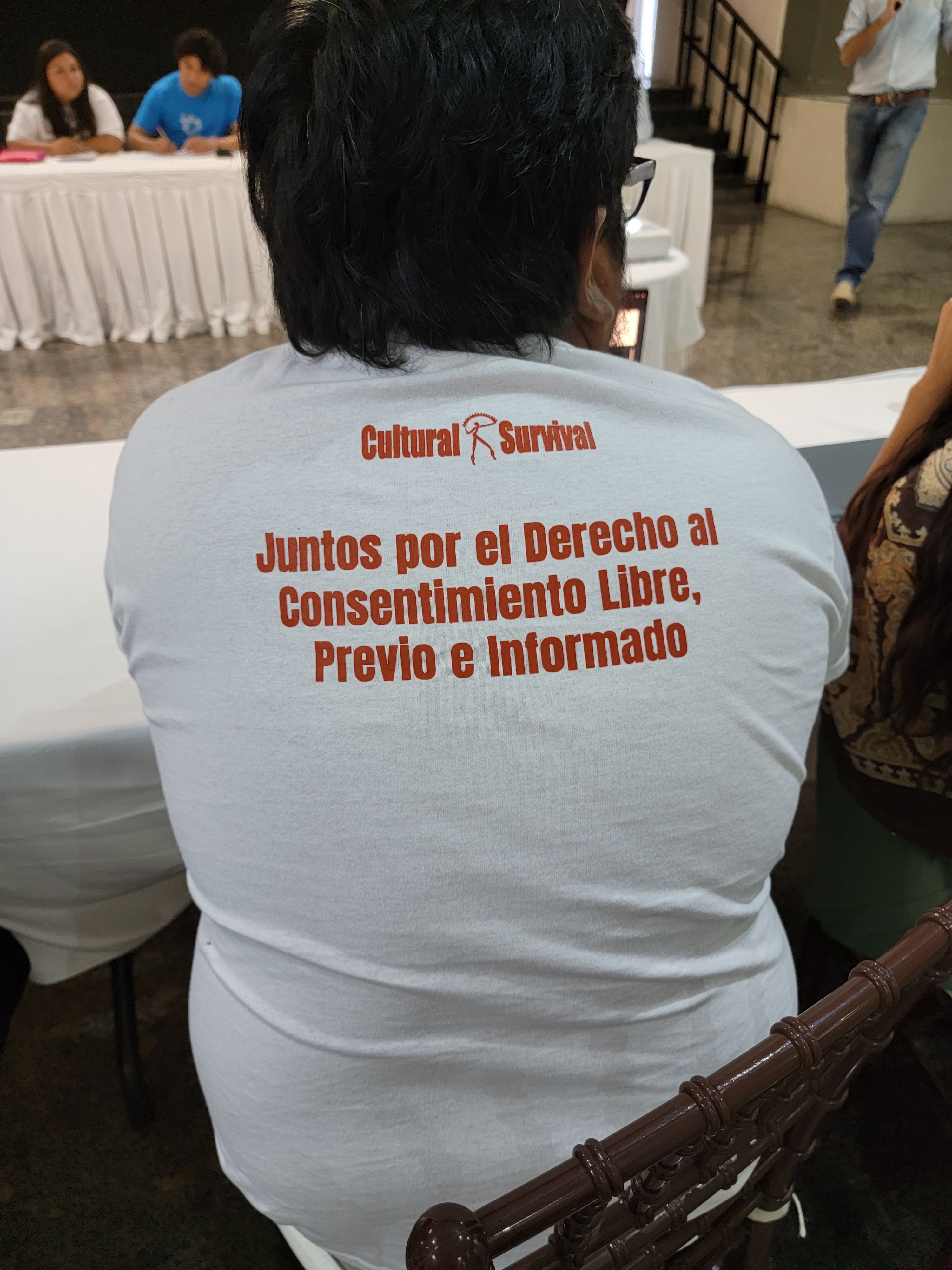
This is the central contradiction of the Free, Prior and Informed Consent processes: on the one hand, the State must guarantee that this right is respected and take the necessary measures so that the communities and Indigenous Peoples collectively learn about and discuss the projects that could affect their lifeways and cultures. However, experience shows that when the government leads and controls these processes, it systematically fast-tracks the FPIC process and is unwilling to make consultations culturally appropriate by not considering Indigenous languages, for example, or by not adhering to the time it takes for communities to reach consensus. Government-led consultations also tend to be carried out without discussion within the communities and without broad community participation, often excluding women, Elders, youth, and children throughout the process.
While the State is obliged to guarantee truly democratic and collective consultation processes, the collective analysis of the participants at the meeting convened by Cultural Survival highlighted the importance of community organizing, building social networks, and strengthening processes in favor of the common and collective goods. By doing so, Indigenous communities will be in a better position to direct their consultation protocols and reject any project that negatively affects their territories, rights, lifeways, and cultures.
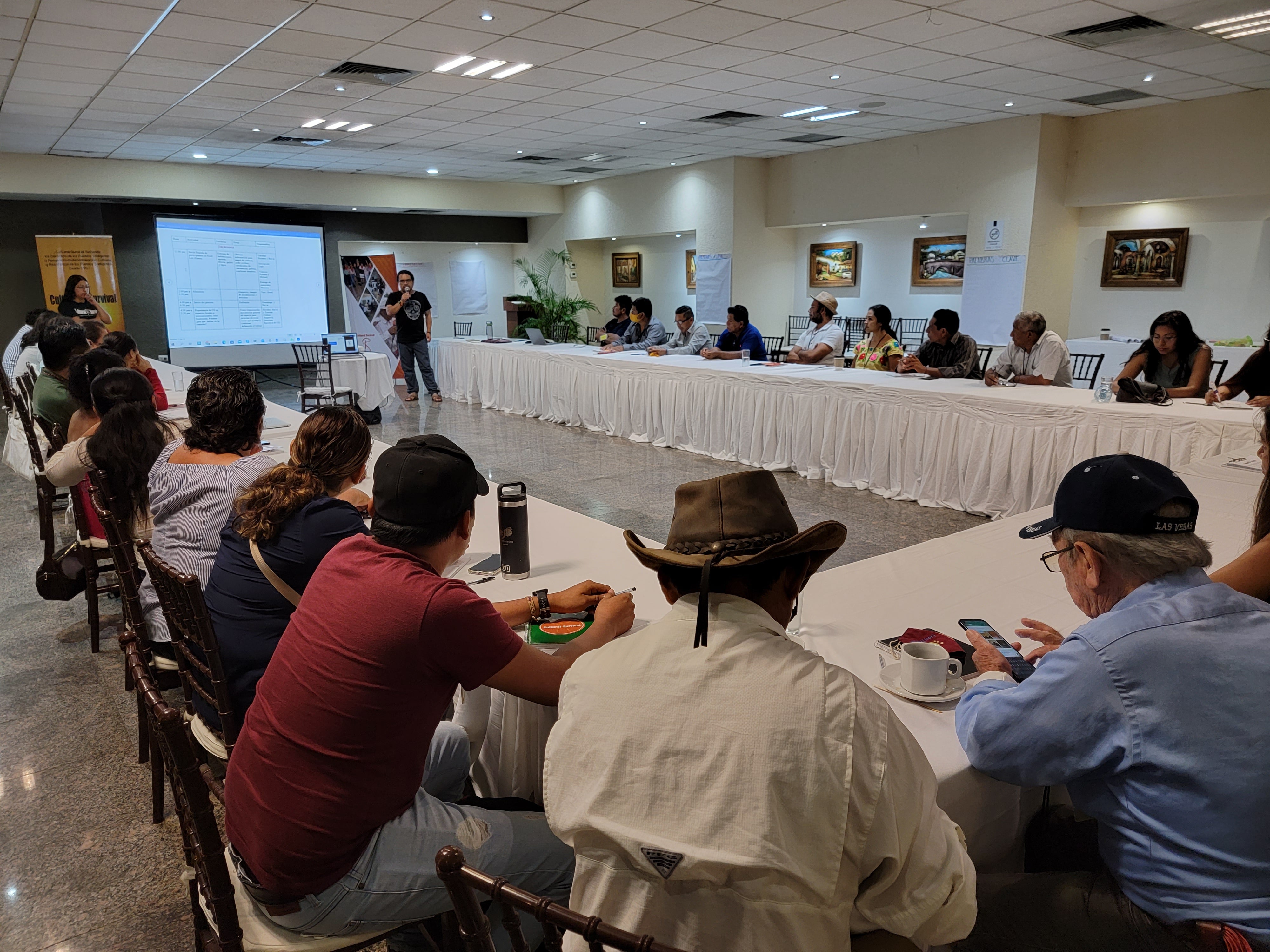
The experiences shared by compañeras and compañeros who came from communities that successfully rejected destructive projects and resisted paramilitary, State, or organized crime violence show that collective resistance and organization are possible when communities have built deeper, more cohesive collective processes leading to self-determination. A member of Consejo Maya del Poniente Chik'in-já said, “We are fighting to defend our area. Fortunately, we have had the support of several institutions. Through this workshop, we have learned a lot about the self-determination of Indigenous Peoples. Empowered, we can continue fighting because we have laws, which many times we are not aware of. From others’ reflections in the workshop, we learned a lot from other colleagues and other groups who are defending their lands and self-determination.”
